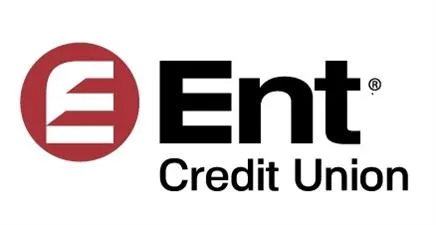Pyle: Avoid knee-jerk reaction during health, financial crisis
T
he COVID-19 pandemic has left people throughout the country feeling stressed and uncertain about their health and financial well-being. Worrisome headlines, escalating infection rates, confusing recommendations, and the increasing death toll underscore the volatility and complexity of the issue. Then, of course, there are the personal circumstances that each person must contend with — their own health vulnerabilities, the challenges of quarantine, and the financial effects of income/portfolio loss.
Typically, when individuals face an adverse situation, they react fast, hoping to deal with the situation quickly. They latch on to the first reasonable solution they can think of and move forward. That’s a knee-jerk reaction. It’s often a gut-level response designed to put out the fire as fast as possible. Unfortunately, these types of quick reactions to a complex situation are frequently associated with negative outcomes. In fact, rapid actions can add additional layers of complexity to an already messy situation.
SPONSORED CONTENT
People who are able to boast a net worth in excess of $500 million tend to avoid such knee-jerk reactions. In fact, they regard both positive and negative situations with some degree of skepticism. They hesitate to act until they’re able to take a well-planned, strategic approach to the situation. They consult experts to ensure they have a complete understanding of the problem or opportunity at hand before taking action. Armed with a process for moving forward strategically, these savvy individuals have a knack for avoiding pitfalls to effectively protect or enhance their financial health.
Create goals
Successful businesses create short-term and long-term goals. Individuals can do the same. Setting goals allows people to create a roadmap of where they want to be in ensuing months and years. Goals provide a framework for the success people want to build for themselves, their businesses, or their careers. When situations arise and individuals need to make decisions, they can base those decisions on the goals they hope to reach.
Take thoughtful action
Rapid reactions are rarely associated with an informed decision-making process. Complex problems demand thoughtful solutions. Yet, many people don’t have a process for promoting thoughtful decision making. First, it’s important to minimize emotions. Fear and excitement can prevent people from carefully evaluating a problem or opportunity from all sides. Emotions can blind people to the hard facts associated with any type of situation. Insecurity, frustration, greed, ambition — these sentiments may get in the way of making the best decisions.
The extremely wealthy have a reputation for being able to emotionally detach from complex situations. In fact, they strive to actively minimize their feelings so that they aren’t controlled by them when making decisions. When people can keep their emotions in check, they can focus exclusively on the facts of a given situation.
Consult experts
Social and peer pressure can be powerful influences. When facing a difficult set of decisions, the ultra-rich avoid those pressures and, instead, consult their network of professional contacts, the people who have proven expertise in the areas associated with the problem at hand. Experts can help people envision solutions and outcomes that may not have occurred to them before. For financial matters, the super-wealthy may discuss their problem or opportunity with a wealth manager, trusted accountant, or a business manager in order to enjoy a critical discussion of the issues at hand. These professionals are used to assessing complex situations and can help in the decision-making process.
When individuals have gathered insights from their trusted network and examined the problem or opportunity from all sides, they can make a final assessment. They know they’re ready to make a decision when they’re able to outline all of the advantages and disadvantages associated with a course of action, when they’re able to list the implications of an action on others (not only themselves), and when they have an understanding how their decisions will support their goals.
Even the best decision-making process can fail. However, the super-rich can point to a pattern of success based on this type of process-driven, thoughtful decision making. With the pandemic continuing to affect the economy and individuals’ personal wealth, there are some opportunities that people should reflect upon as they examine their goals and assess their own situations and how to improve them. A few goals that individuals might adopt include:
Create an emergency fund
If you are a small business owner, take advantage of the Paycheck Protection Program, which was part of the CARES act.
• Consider refinancing your home, rental or commercial properties.
• Investigate financial opportunities such as a Roth 401K.
• Contribute to an IRA or a Roth IRA if you are eligible. The deadlines for contributions have been extended to July 15th.
• Work with a financial professional who can find customized solutions for you.
Individuals should also revisit their financial tolerance level in order to re-evaluate financial goals. If your financial picture has changed, you can make adjustments to improve your comfort level using some of the strategies listed above. Searching for new investment strategies, refinancing, and working with a financial expert can make these tricky financial times easier to navigate.
Avoiding knee-jerk responses during this time of health and financial crisis may not be easy but embracing a process of careful evaluation and thought will lead to better outcomes.
Robert J. Pyle, CFP®, CFA is president of Diversified Asset Management Inc. DAMI is licensed as an investment adviser with the state of Colorado Division of Securities, and its investment advisory representatives are licensed by the state of Colorado.To contact Robert, call 303-440-2906 or e-mail info@diversifiedassetmanagement.com
T
he COVID-19 pandemic has left people throughout the country feeling stressed and uncertain about their health and financial well-being. Worrisome headlines, escalating infection rates, confusing recommendations, and the increasing death toll underscore the volatility and complexity of the issue. Then, of course, there are the personal circumstances that each person must contend with — their own health vulnerabilities, the challenges of quarantine, and the financial effects of income/portfolio loss.
Typically, when individuals face an adverse situation, they react fast, hoping to deal with the situation quickly. They latch on to the first reasonable solution they…




